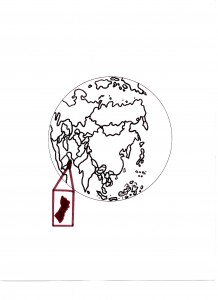OMAN
A. THE COUNTRY
The Sultanate of Oman, in Asia, is a mountainous land on the southeast
coast of Arabia and the strategic tip of the Musandam Peninsula that
dominates the entrance to the Arabian/Persian Gulf. Oil production is
the primary source of revenue, but its declining production requires
economic diversification. Agriculture, fishing and light industry are
important to the economy and tourism is increasing. The government is a
benevolent Islamic absolute monarchy. There is a high degree of
personal freedom and political stability.
B. THE PEOPLE
The population is ~2,906,000 and the official language Arabic.
Approximately 25% of the official population is expatriate, comprising
the majority of the workforce.
~66.8% are Arab, ~16.6% Iranian-Median, ~14.3% South Asian, ~2.4% Other
(Filipino, African, European, North American).
C. RELIGIONS AND CHRISTIANITY/PENTECOSTALISM
Islam is the state religion; the Ibadi sect predominates. The Sultan
has consistently opposed extremist strains of Islam. While
proselytizing Muslims is forbidden, all residents are free to practice
their faith, and the government has given land for places of worship to
be built. ~88.72% are Muslim, ~6.8% Hindu, ~2.76% claim to be
Christian, ~0.65% Buddhist, ~0.55% Sikh, ~0.3% Baha’i, ~0.22%
Non-religious. In the Christian category:
~1.1% are Catholic, ~0.59% Orthodox, ~0.42% Protestant, ~0.3%
Unaffiliated, ~0.19% Independent, ~0.16% Anglican.
Evangelicals represent ~0.8% of the population.
Charismatics represent ~0.4% and of those ~0.2% are Pentecostals.
Donna Siemens
References:
http://en.wikipedia.org
Operation World, Jason Mandryk. Colorado Springs: Biblica Publishing, 2010.

